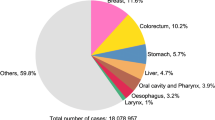Abstract
Background
Paclitaxel (PTX) is an essential anticancer drug used to treat breast cancer. Because it contains alcohol as a solvent, it is contraindicated in many Japanese breast cancer patients when they are suspected of alcohol intolerance. Aldehyde dehydrogenase 2 (ALDH2) is one of several enzymes that catalyzes dehydrogenation of aldehydes, and plays an important role in ethanol metabolism. Deficiency of this isozyme is believed to be responsible for facial flushing and other unpleasant symptoms following ethanol intake. In this study, we examined the safety of PTX for patients with the ALDH2 GA genotype.
Methods
We performed ALDH2 genotyping on 25 patients with various cancers who were suspected to be intolerant to alcohol based on an interview using a simple question. Ten patients with the ALDH2 GA genotype, including 5 breast cancer patients, underwent chemotherapy containing PTX up to 100 mg/m2 (range 80–100 mg/m2), and were questioned about 16 alcohol-related symptoms at 11 timepoints to evaluate sensitivity to alcohol.
Results
All patients completed the first course of planned chemotherapy with either no or grade 1 alcohol-related symptoms.
Conclusions
Our study suggests that PTX up to 100 mg/m2 can be used safely for patients with the ALDH2 GA genotype. To confirm the necessity of a genotyping test for ALDH2, further studies evaluating alcohol sensitivity in response to PTX among patients with the ALDH2 AA genotype are required.

Similar content being viewed by others
References
U.S. Food and Drug Administration. TAXOL (paclitaxel) prescribing information. 2016. http://www.accessdata.fda.gov/drugsatfda_docs/label/2015/020262s051lbl.pdf. Accessed 3 Aug 2016.
Mizoi Y, Yamamoto K, Ueno Y, Fukunaga T, Harada S. Involvement of genetic polymorphism of alcohol and aldehyde dehydrogenases in individual variation of alcohol metabolism. Alcohol Alcohol. 1994;29(6):707–10.
Harada S, Agarwal DP, Goedde HW. Aldehyde dehydrogenase deficiency as cause of facial flushing reaction to alcohol in Japanese. Lancet. 1981;2(8253):982.
Higuchi S, Muramatsu T, Shigemori K, Saito M, Kono H, Dufour MC, et al. The relationship between low Km aldehyde dehydrogenase phenotype and drinking behavior in Japanese. J Stud Alcohol. 1992;53(2):170–5.
Webster LK, Crinis NA, Morton CG, Millward MJ. Plasma alcohol concentrations in patients following paclitaxel infusion. Cancer Chemother Pharmacol. 1996;37:499–501.
Wilson DB, Beck TM, Gundlach CA. Paclitaxel formulation as a cause of ethanol intoxication. Ann Pharmacother. 1997;31:873–5.
Harada S. Classification of alcohol metabolizing enzyme and polymorphisms specificity in Japanese. Jpn J Alcohol Drug Depend. 2001;36(2):85–106.
Li H, Borinskaya S, Yoshimura K, Kal’ina N, Marusin A, Stepanov VA, et al. Refined geographic distribution of the oriental ALDH2*504Lys (nee 487Lys) Variant. Ann Hum Genet. 2009;73:335–45.
Higuchi S, Matsushita S, Murayama M, Takagi S, Hayashida M. Alcohol and aldehyde dehydrogenase polymorphisms and the risk for alcoholism. Am J Psychiatry. 1995;152(8):1219–21.
Yokoyama A, Omori T, Yokoyama T. Alcohol and aldehyde dehydrogenase polymorphisms and a new strategy for prevention and screening for cancer in the upper aerodigestive track in east Asians. Keio J Med. 2010;59(4):115–30.
Komagata H, Yoneda S, Sakai H, Isobe K, Shirai T, Fujimura M, et al. Breath alcohol concentrations in Japanese outpatients following paclitaxel infusion. Int J Clin Pharmacol Res. 2005;25(4):195–202.
Ban A, Oshima Y, Hisada T, Gocho S, Ishikawa M, Soga M, et al. The effect of alcohol contained in paclitaxel on patients. Nichibyouyakushi. 2009;45(8):1123–6.
Author information
Authors and Affiliations
Corresponding author
Ethics declarations
Conflict of interest
Tetsuhiro Yoshinami received lecture fees from CHUGAI PHARMACEUTICAL CO.,LTD.
About this article
Cite this article
Yagi, T., Fujiishi, K., Hasegawa, A. et al. Aldehyde dehydrogenase 2 genotype in tolerability of alcohol contained in paclitaxel in Japanese breast cancer patients. Breast Cancer 26, 229–234 (2019). https://doi.org/10.1007/s12282-018-0918-9
Received:
Accepted:
Published:
Issue Date:
DOI: https://doi.org/10.1007/s12282-018-0918-9



